Anton Yelchin: The Tragic Death of a Cinema Champion
The late Anton Yelchin is remembered warmly in Garrett Price's clear-eyed documentary, Love, Antosha.
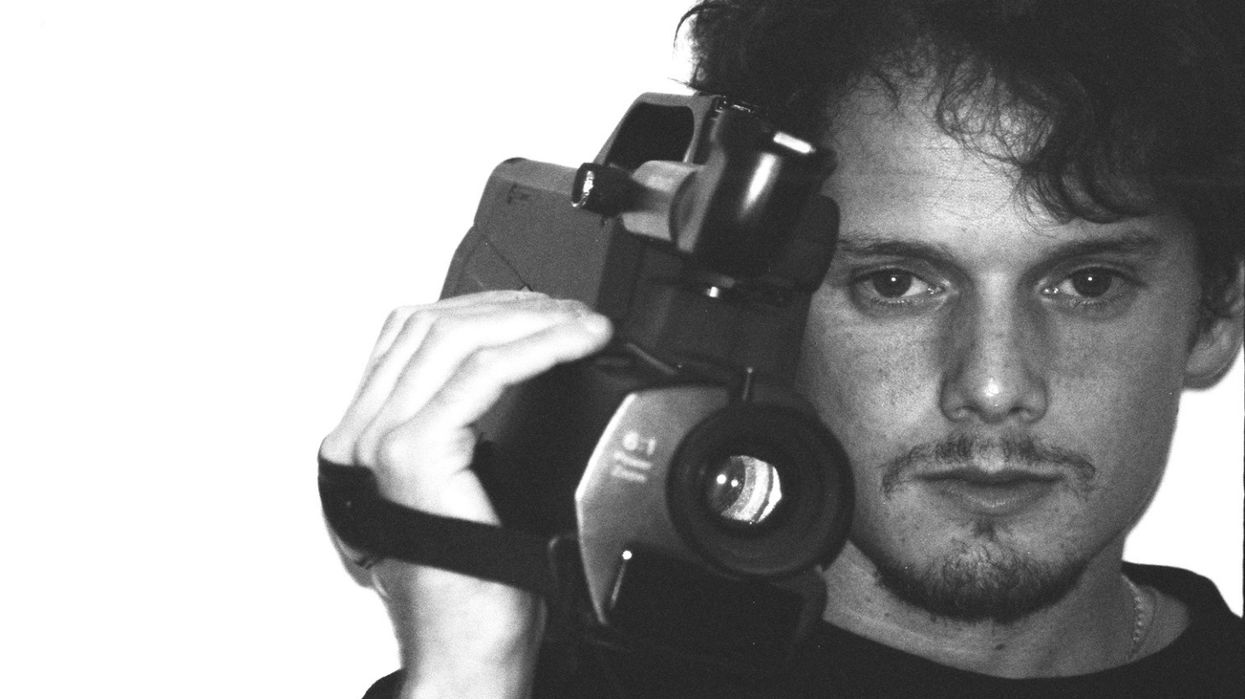
In the summer of 2016, a freak accident sent shockwaves through Hollywood. 27-year-old actor Anton Yelchin was found dead in his own driveway, apparently crushed by his Jeep Grand Cherokee SUV. He received a recall notice for the defect car seven days after his death. (His family has since pursued a lawsuit.)
It was a tragedy beyond comparison, and one that robbed Hollywood and cinema of one of its greatest champions. Yelchin was not only a preternaturally talented performer, but he was also a fastidious worker who was intensely dedicated to his craft. He dove into his roles with the authenticity of a method actor and the humility of an up-and-comer. He was a fierce advocate of independent cinema, but was savvy enough to know that he'd have to compromise by taking on some blockbusters, too.
"There was a story that needed to be told about this force of a human being named Anton Yelchin."
Yelchin's passion for acting and prolific career is explored in Garrett Price's new documentary, Love, Antosha. Although Price didn't know Yelchin personally, this was by design. Drake Doremus, who had directed Yelchin twice and remained a close friend of the late actor's, produced the project alongside Price, whom Doremus thought would be more objective than himself. The result is a clear-eyed portrait of the actor, in which many of his collaborators — Chris Pine, Kristen Stewart, Jennifer Lawrence, J.J. Abrams, Willem Dafoe, and Jodie Foster — pay tribute to the Star Trek star. ("He'd go farther than most people," Ben Foster says of Yelchin's commitment to his roles.) Despite the young age at which he died, Yelchin's career, which spanned 69 diverse roles, is a true testament to his range and the immensity of his talent.
No Film School sat down with Price and Doremus to discuss how Yelchin's honesty and authenticity, both in his life and in his acting, continues to inspire them and how they managed to bring nuance into their portrait of the young star gone too soon.
No Film School: Both of you went to film school at AFI. Did you meet each other there?
Garret Price: We did. It was love at first sight. I was editing some of Drake's short films there, and we remained friends.
Drake Doremus: We didn't work together until late in the first year. AFI is a very strange, very cliquey place. It's very small. It's very political and very competitive. But you know, people like Garrett -- who are talented and have a great personality -- are very rare, so I gravitated towards that. He's very no-bullshit. All about the work. Passionate collaborator.
Price: I could still have fun!
"He didn't give a shit about the Hollywood side of things."
NFS: And how did you decide to work together on this? Drake, I assume this was a very personal project for you.
Price: Yeah, so when Irena and Viktor Yelchin [Anton's parents] started to explore this idea of making a documentary about Anton, they initially approached Drake because how important of a role he played in Anton's life not only a filmmaker, but also as a friend. But Drake convinced them that he wasn't the right person to take this on. He was just too close to Anton. Drake thought there really should be an objective eye to come in and tell the story. But he very much still wanted to be a part of it.
Drake called me up and was like, "I want to pitch you for something. Why don't you come over and meet Anton's parents?" I spent an afternoon talking to his parents and really came to realize there was a story that needed to be told about this force of a human being named Anton Yelchin.
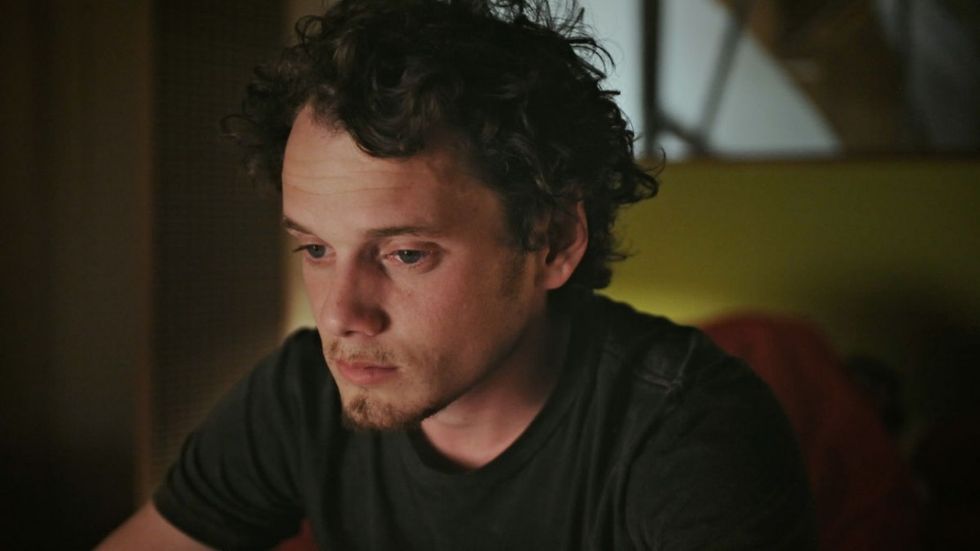
Doremus: I think the tension was really based on trying to be as honest as possible. We talked a lot about not trying to make a pop piece, but trying to make an honest piece. And some of it is obviously a little bit like that. Everyone loves him, and that's in the film. But at the same time, it's also about trying to examine the chaos and the demons and the fears of being an artist. It's about trying to realize your purpose and realizing that maybe, you know, things aren't what they seem to be in this town, and it's tough to try to be honest. I think his parents really appreciated that Garrett did make a film that examined the truth about his life.
"[We tried] to examine the chaos and the demons and the fears of being an artist."
Price: They were great collaborators because they truly gave me full autonomy to explore Anton as a subject. That is hard to do in films like this, especially when a family or estate is involved. I think them being artists themselves and raising an artist, they really respected the job of a filmmaker coming in to tell a story. And they were always there for me if I needed to talk to them, to ask questions about Anton, or to interview them. Kudos to them for being the ultimate collaborators. Words can't describe how difficult it has been for them, but they knew how inspiring Anton's story was to share.
NFS: What did you learn about Anton that surprised you, if anything?
Doremus: There's nothing better than finding actors that are not actors, if that makes any sense. I don't mean that as a sleight to the profession, because there are so many wonderful, talented artists out there who really care about the right things. Who are in the business for the right reasons. And then there are some people whose motives for being in the business are not really 100 percent pure.
That's what's so special about Anton: The minute I met him, I just knew that he didn't give a shit about the Hollywood side of things. He knew that it was important to grow and to become who he needed to become in order to take on different kinds of leads in movies. But for the most part, he was so passionate and interested in exploring the depth of the work.
Price: There were surprises for me around every corner, and I think this is where [the project] lends itself to bringing in an objective eye — someone that didn't know him. I really wanted to unfold the film like I was learning about Anton as I was making it: "Oh, he worked with Kristen. Oh, he worked with Jen. Oh, he did this. He did that." I learned that everyone was an equal in his life.
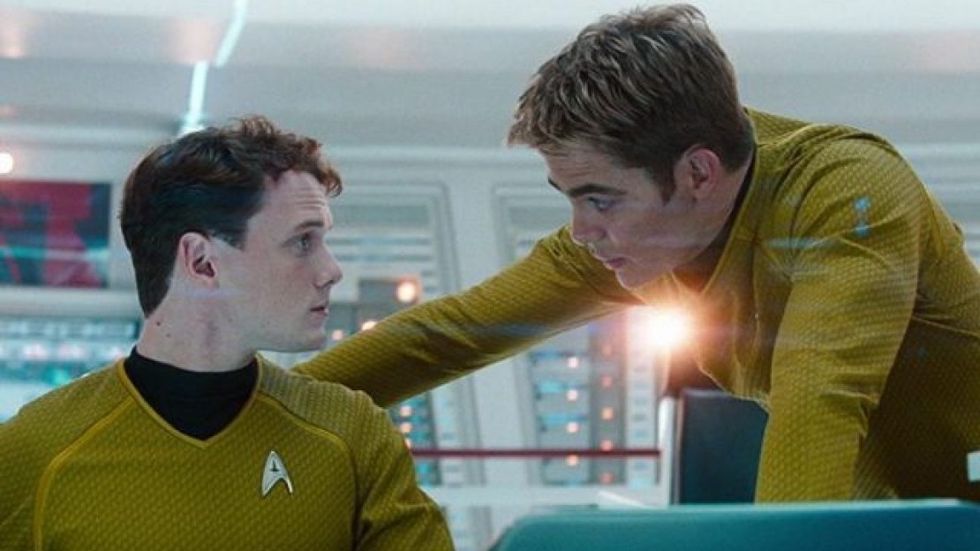
Doremus: Yeah, whether you're a PA, a gaffer, or Jennifer Lawrence—
Price: Or his kindergarten friends—
Doremus: He was so interested in everybody and how they influenced him and how he influenced them.
Also, the cystic fibrosis stuff was definitely a surprise. I mean, I knew him for seven years and I didn't know he had that. I always thought he had asthma. I didn't know what it was. He always covered it up. He didn't want anyone to know. And I think, with the exception of his close friends and his family, he didn't let anybody know. He didn't want it to get in the way of his work.
NFS: You said that Anton wasn't interested in the bullshit of Hollywood. What do you mean by that?
Doremus: I mean, you have to play the game a little bit. But he knew which part of the game to play and which part of the game was bullshit. That's why he did bigger movies and smaller movies — so he could afford to kind of jump around. He just had a knack for knowing the right amount of bullshit that he had to participate in to play the game, to be who he had to be.
"Nobody prepared like Anton did. He prepared for the unknown."
NFS: So he cracked the code.
Doremus: Yeah, I think so. I mean, he was so savvy. He had been in the business for so long. He'd been acting at such a young age. He just kind of figured it out by the time he became a young man.
You could see it even if you watch the press he did. I did press with him for a long period of time -- all over the world -- and he was just so honest. He never said the same thing twice. He was always just so present and curious about how to spin something differently from someone's perspective. If someone had a different question or a different idea, he explored that. He was never on autopilot.
NFS: As you mentioned before, it's clear in the film that Anton was in the business for the right reasons — a deep love of cinema and an honest exploration of humanity.
Doremus: Nobody prepared like Anton did. He prepared for the unknown. That was the coolest part. It wasn't just like, "I know exactly what I'm supposed to do." He prepared so that he knew the parameters, so that whatever unknown was going to come his way, he could be totally ready for it. That's why he's such a great improviser.
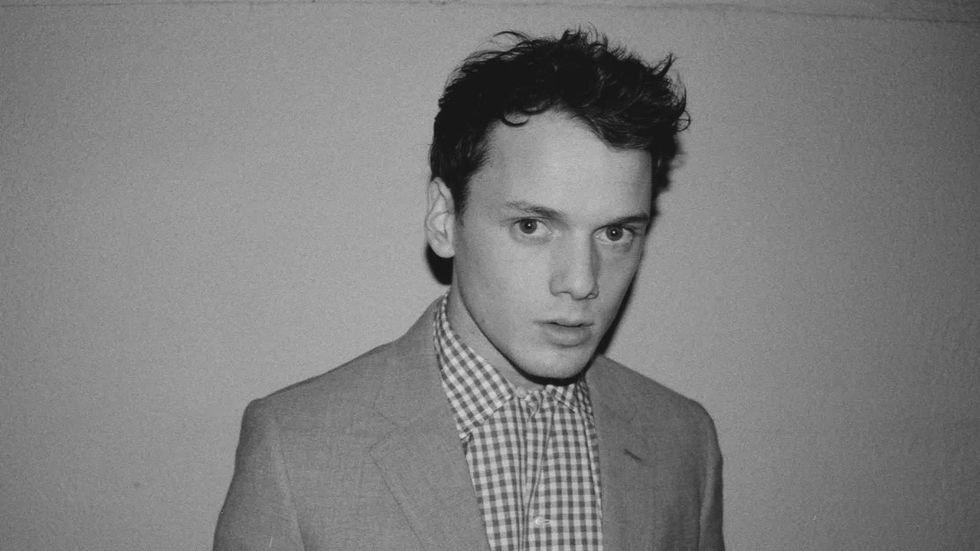
NFS: How do you prepare for the unknown as an actor?
Doremus: I think it's just about understanding every facet of a character's back story. He was so obsessed with every little thing, whether it was an experience that his character had in kindergarten or something had happened with his mother when he was seven years old or whatever. He would write like, like pages and pages of content—of backstory—so he had an understanding of what happened that informed everything that was going on in his character's life.
Price: He learned to build chairs [for Like Crazy].
Doremus: Yeah. He went and worked in a chair shop for a week in Echo Park, building chairs. I mean, little things like that just permeate in this character through the course of the movie.
"He loved the way movies made people think about their own lives."
NFS: What do you think that he loved about cinema?
Price: I think movies affect people, whether good or bad.
Doremus: He loved the way movies made people think about their own lives. He was so interested in dissecting other people's journeys and experiences and how they relate to our own. He was so interested in the philosophical point of every film.
Price: We're discovering now, with this movie we've made about Anton, that people are thinking about their own lives.
NFS: Can you tell me about the editing process? There is a lot of archival material that you were working with.
Price: Irena and Viktor archived everything of Anton's. Especially after he passed away, they started gathering old home videos, interviews he had done, all the letters he wrote to his parents. They were just ready to hand it over to me. I was amazed.
The very first thing I saw was that video of him getting drunk for Alpha Dog. Do you remember that in the film? It's amazing. [To shoot Alpha Dog, Anton needed to act drunk, but because he'd never had the experience in real life, he decided to film himself trying alcohol for the first time.] When I saw that, I was like, "This is a coming-of-age story." Anton went through these life experiences we all go through, but because of the love of cinema.
I also really latched on to these letters that he wrote to his mom and dad. I knew this film would only work if we could tell it from Anton's point of view as much as possible. And this was a direct window inside his head, these letters. They started when he was young, all the way up until his death. They gave me a kind of framing device. And you fill in the gaps in between.
Doremus: In the film, there's this video he filmed of himself, where he kind of looks strung out and exhausted. And he's like, "Sometimes, it's hard to make the kind of cinema you want to make." I think that's my favorite moment in the film.
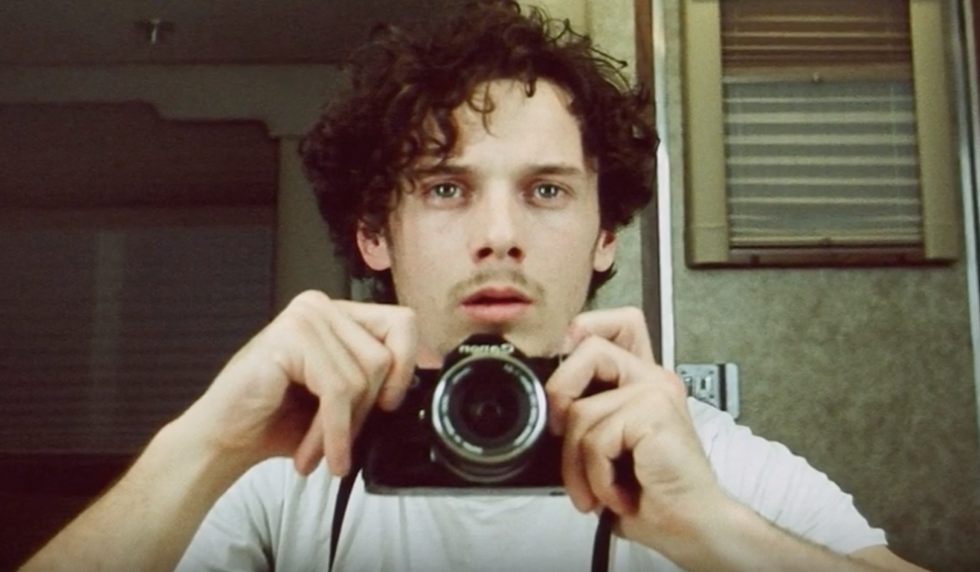
NFS: How did you approach conducting the interviews?
Price: We kind of just let people talk. You guide it a little bit. But, you know, I think these interviews work because it was really important that this movie was never going to be over-stylized. We literally went in with a light kit and a camera. That's it. I think that is why we get these really unguarded, authentic interviews. If we put a backdrop and multiple cameras and a whole crew, you would never get that.
NFS: I love this idea that Anton's guiding principles and values were guiding the filmmaking itself. I think that's really beautiful.
Price: Yeah. It was hard to find the darker stuff sometimes because he was truly such a wonderful soul. And that's why I think this idea of the celebration of life always rises to the top in the film. This was always going to be a movie about life, not death.











